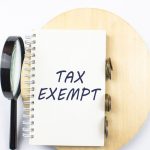Churches often provide housing assistance for their pastors or ministers, whether it be a church-owned parsonage or some type of housing allowance. Whatever the situation, housing allowances offer significant tax benefits for pastors and ministers under Section 107 of the Internal Revenue Code (IRC). If you have questions about the housing allowance tax benefits available to your pastor or minister, contact Church Law Center at (949) 892-1221 today to learn more.
Church-Owned Parsonages
Ministers who live in church-owned parsonages or homes can exclude the following from their gross income for the purposes of federal income taxes:
- The fair rental value of the parsonage, and
- The portion of their annual compensation designated in advance by the church as a “parsonage allowance,” to the extent that it is used to pay for parsonage-related expenses, such as utilities, furnishings, and repairs, so long as it does not exceed the fair rental value of the home as furnished, plus utilities.
However, although the parsonage allowance is an exclusion from gross income in terms of federal income taxes, it is not an exclusion for the purposes of self-employment taxes, according to IRS. (See IRS Publication 517 (2022) Social Security and Other Information for Members of the Clergy and Religious Workers.)
In this situation, whatever body of the church makes decisions about compensation, whether it be the governing board of the church, the personnel or compensation committee of the board, or the membership, designates the parsonage allowance. No matter how this procedure occurs, the appropriate body must designate the parsonage allowance in advance, in writing, and in a definite amount. Failure to designate a definite amount will result in the pastor’s entire salary being gross income for federal income tax purposes. A parsonage allowance generally is not retroactive, so making this designation at the end of each year for the following calendar year is advisable.
Pastors Who Own Their Homes
Some ministers and pastors own their homes. The portion of the minister’s compensation that the church designates as their “housing allowance” is not subject to federal income taxes so long as the minister uses it for housing-related expenses. In this situation, housing-related expenses may include:
- Principal payments on a mortgage loan
- Down payments and related costs for purchasing a home
- Property taxes
- Mortgage loan interest
- Utilities
- Furnishings and appliances
- Homeowner’s insurance
- Improvements
- Maintenance and repairs
Again, the housing allowance cannot exceed the furnished home’s fair rental value plus utilities.
Like a parsonage allowance, a housing allowance is not retroactive. Therefore, the governing body of the church that handles compensation should determine the housing allowance amount at the end of each year for the following year.
Ministers Who Rent Their Homes
If your minister rents a house or apartment, they can still take advantage of the tax benefits of a designated housing allowance. Your church can designate a housing allowance for the minister for housing-related expenses, including rent, utilities, furnishings, and renter’s insurance. The housing allowance is not subject to federal income taxes so long as it does not exceed the home’s fair rental value as furnished, plus utilities.
Calculating the Parsonage or Housing Allowance
It is up to the church board to determine the correct parsonage or housing allowance. In some cases, it may be necessary to ask the pastor questions about housing expenses and ask that he or she provide documentation to properly determine those expenses.
However, if the ultimate amount of the allowance appears uncertain, the board should be generous in its estimate, but reasonably so. A minister cannot exclude housing-related expenses from their taxable income that exceed the parsonage or housing allowance. Therefore, it may be beneficial for the church to overestimate rather than underestimate the parsonage or housing allowance, which can provide a cushion for unexpected housing-related expenses. If the minister receives an excess housing allowance or a portion of the designated housing allowance that is more than the actual housing expenses or the fair rental value of the home as furnished plus utilities, then the minister must simply claim the excess housing allowance as taxable income on their federal income tax return. The church typically will not include the excess housing allowance on the minister’s W-2 form at the end of the year, so it is up to the minister to claim it as taxable income on their tax return.
Finally, while it is possible to amend the parsonage or housing allowance during the year, the amendment only applies prospectively, not retroactively. In other words, the amended amount of the housing allowance only applies to the months of the year remaining after the amendment and cannot apply to the months that already have passed. Therefore, as soon as the need for an amendment becomes apparent, ministers and churches should take steps to amend the housing or parsonage allowance by addressing it at the next board meeting. The earlier in the year that an amendment occurs, the greater the allowance can increase and the more the pastor can benefit from the amendment.
Contact Us Today for Legal Assistance
Church Law Center gears its practice to legal matters that affect nonprofit organizations, churches, and other religious organizations, including nonprofit political activity in California. This focus allows us to concentrate on keeping abreast of the ever-changing laws and policies as they develop over time. We are here to represent your interests throughout every stage of your legal matter. Call us today at (949) 892-1221, or visit us online and see what we can do for you.






